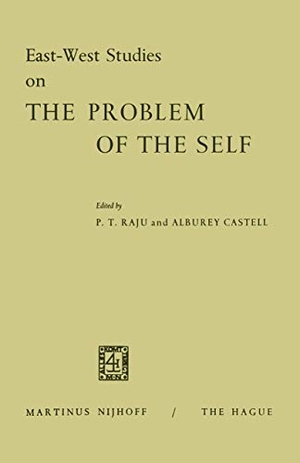Für statistische Zwecke und um bestmögliche Funktionalität zu bieten, speichert diese Website Cookies auf Ihrem Gerät. Das Speichern von Cookies kann in den Browser-Einstellungen deaktiviert werden. Wenn Sie die Website weiter nutzen, stimmen Sie der Verwendung von Cookies zu.
Cookie akzeptieren
Poolla Tirupati Raju
East-West Studies on the Problem of the Self
- Springer Netherlands
- 1968
- Taschenbuch
- 252 Seiten
- ISBN 9789401501347
The general characteristics of the decades after the last World War, so far as the human situation goes, include two phenomena: these decades are marked by man's dissatisfaction with himself, his confession of ignorance of himself, his anxiety about his future, and also his earnest search for the ground of his being, which can give him a feeling of security with reference to his life here and hereafter; they are also marked by man's pride about his achievements in science and tech nology, a hope of a better life on earth, and a faith in himself as capable of engineering the individual and society for realizing peace, harmony, and happiness for all men. The contemporary thinking man is conscious of the predicament these two kinds of characteristics have created for him, admits failures, hopes for improvements, and works for them. In carrying out this work, he has to and wants to know what
Mehr
Weniger
zzgl. Versand
in Kürze